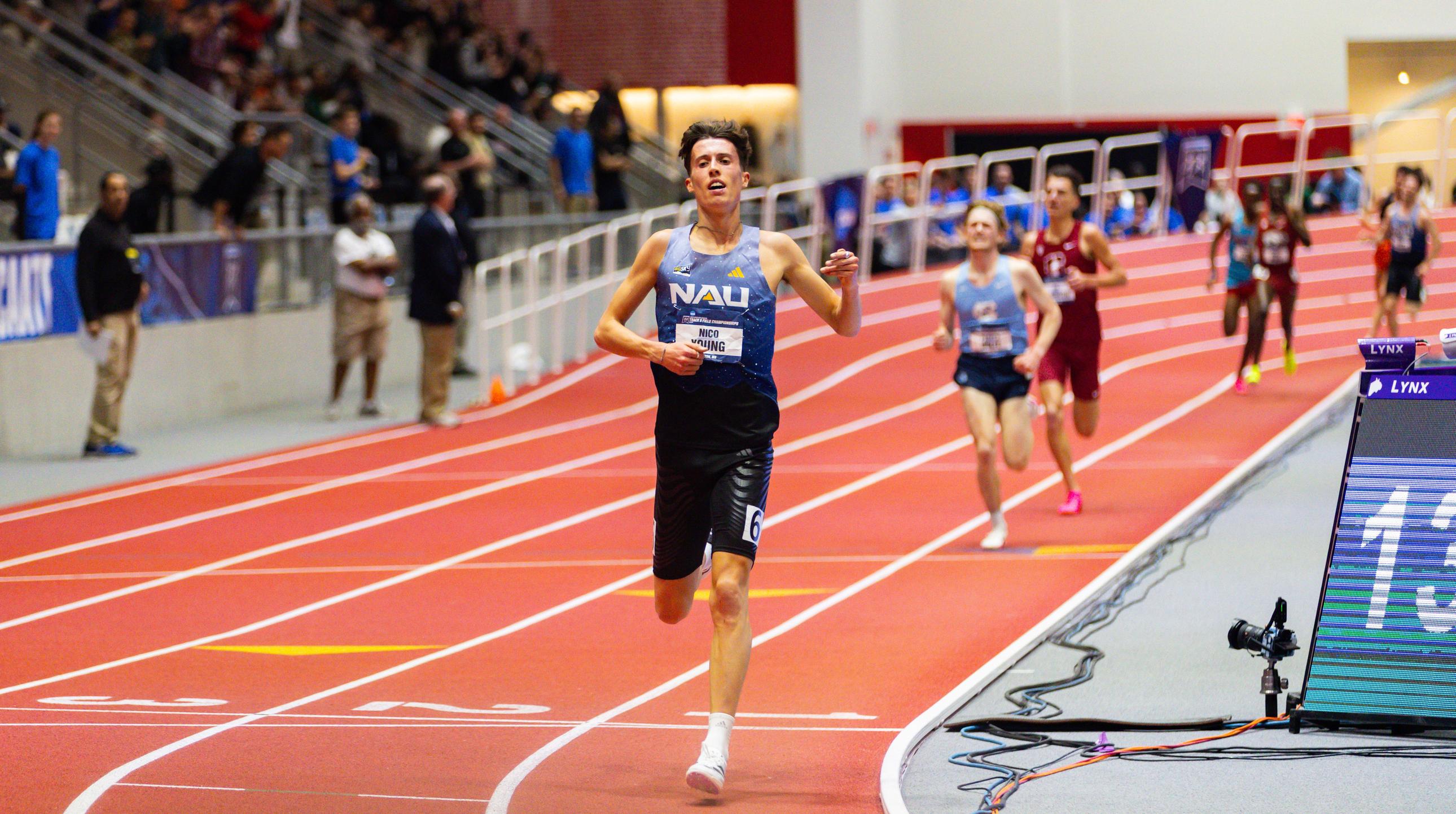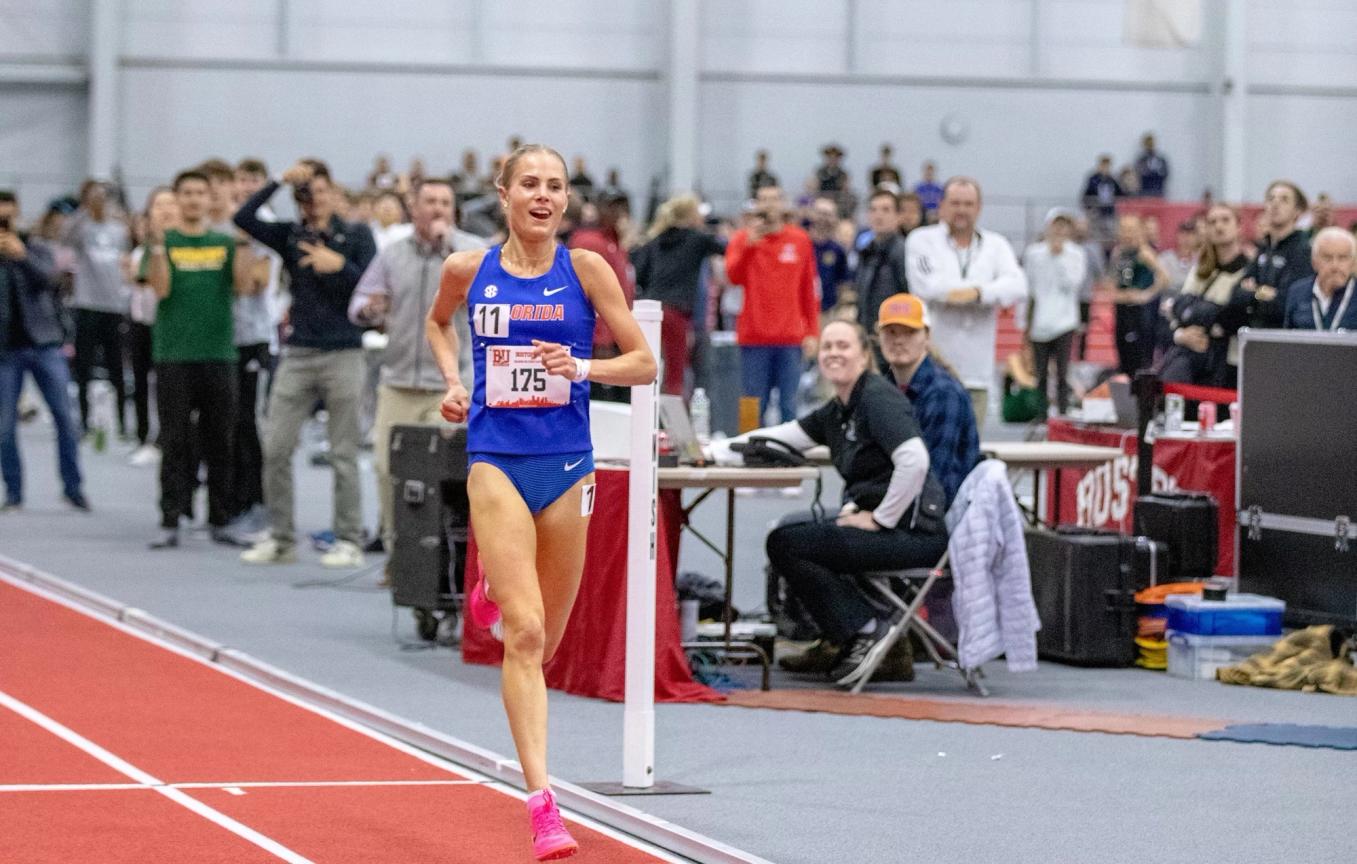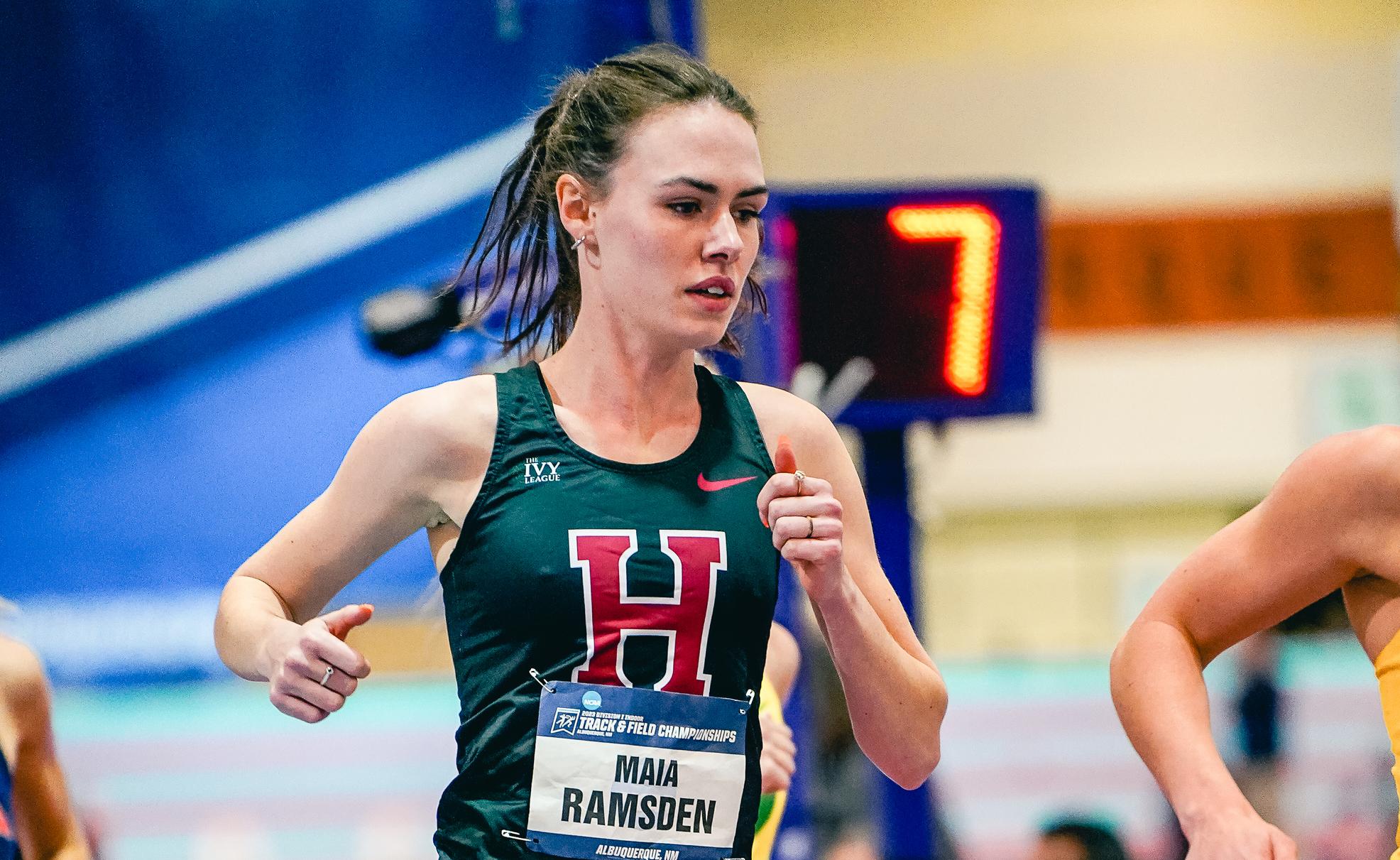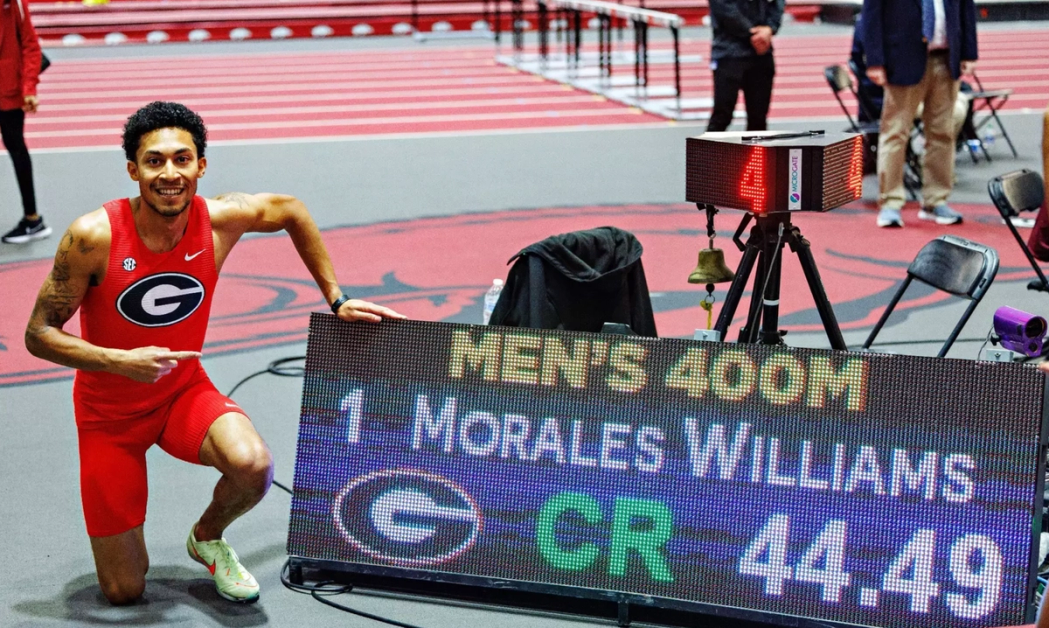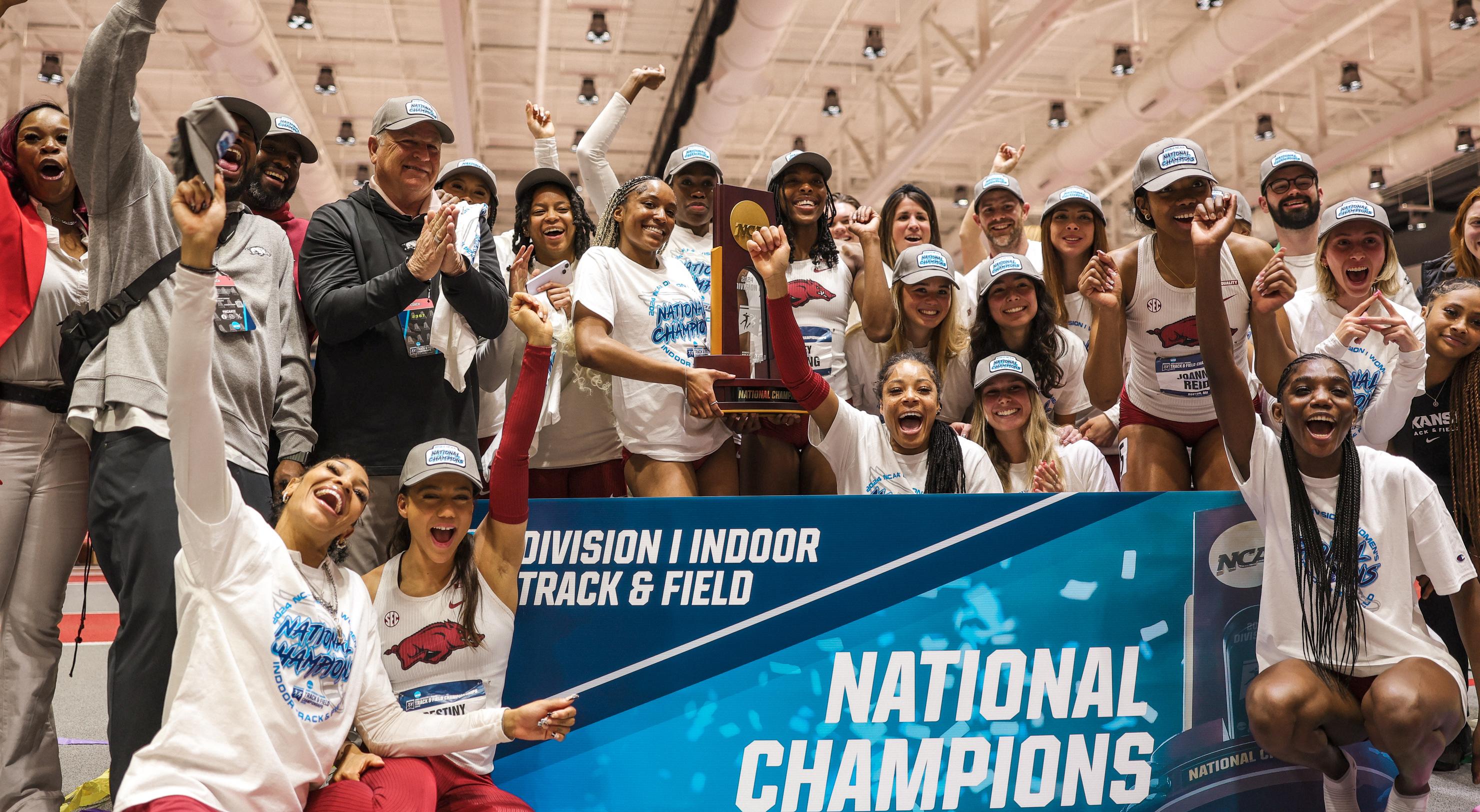By David Melly
March 12, 2024
The 2024 NCAA indoor season is officially in the books – and what a season it was.
With world-leading marks coming from the collegiate ranks and record books getting rewritten seemingly every week, there was no lack of activity on the “short track” circuit leading up to a barn-burner NCAA championship hosted by Boston College at the TRACK at New Balance. The Arkansas Razorbacks weren’t quite able to repeat their double-victory sweep of the team titles this time around, but with a dominant victory on the women’s side and a runner-up finish on the men’s, the Razorbacks have now proven two years in a row that they don’t have to host the indoor championships to perform well at them.
On the men’s side, the Red Raiders of Texas Tech picked up their first indoor championship in program history (they won outdoors in 2019) thanks to a strong team performance in the short sprints. But the team with the best range might be the Florida Gators, as evidenced by this viral moment of eventual-5000m champ Parker Valby giving her long jump teammate Claire Bryant a thumbs up while both were mid-competition.
Full results can be found online here. All our post-race interviews and recaps can be found on our YouTube channel.
Now that the dust has settled on a busy weekend of track and field, here are our top 10 takeaways from the 2024 NCAA Indoor Championships:
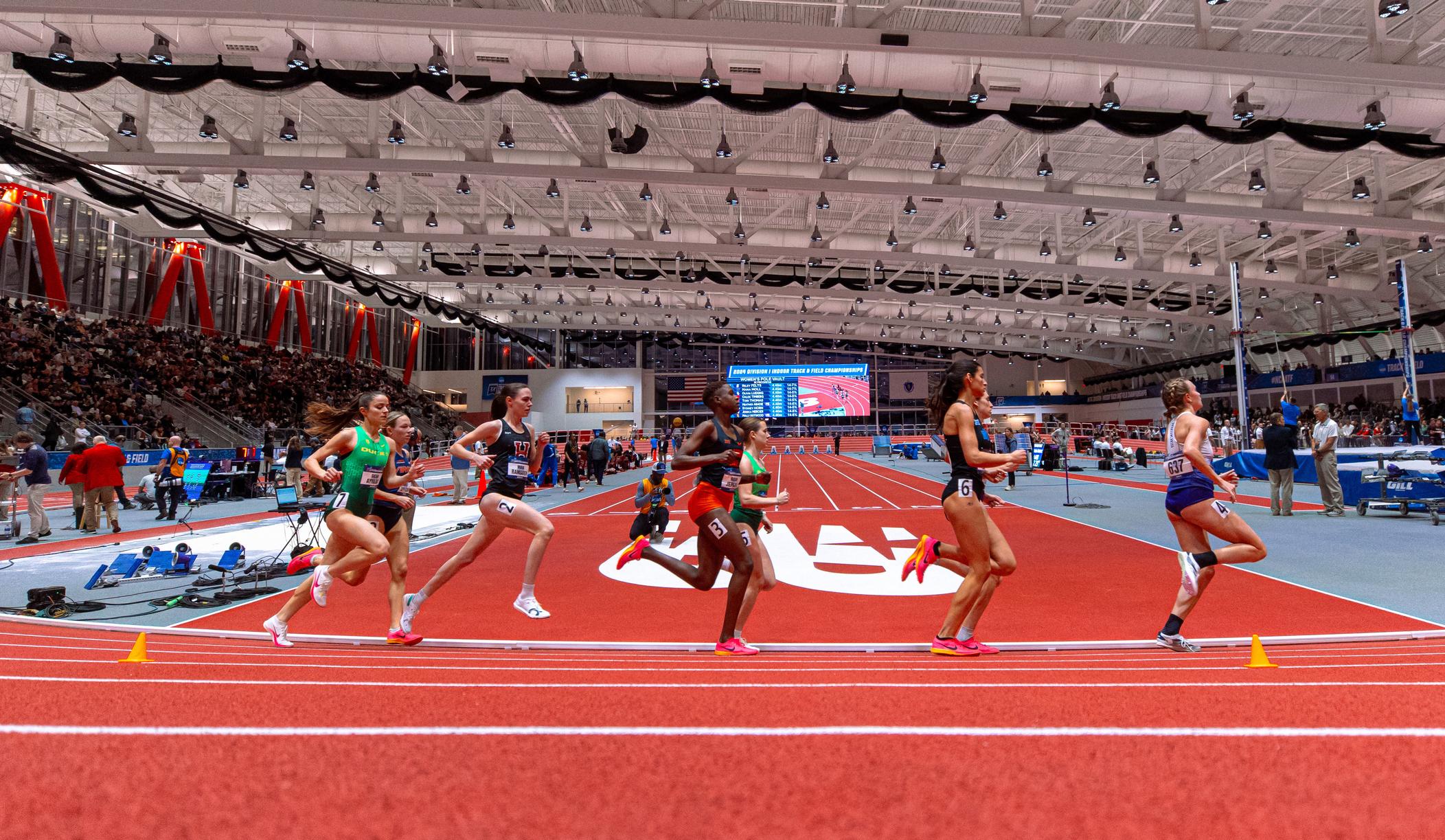
Austin DeSisto / @austin.desisto
Boston shows why it’s the indoor track capital of the world.
With all due respect to Glasgow and Albuquerque, Boston, MA is the best place in the world to run indoor track. It helps that it’s one of the only cities in the world with four world-class indoor facilities (plus a few other less-fancy ones), but this weekend really proved why Beantown is the place to be when it comes to running fast, jumping high, and throwing far in the winter.
Not only did the meet sell out a week in advance – when was the last time that happened? – but the confluence of the high school and collegiate nationals on the same weekend in the same city provided a double-win for NCAA coaches looking to recruit and high school athletes looking to be inspired. Hosting the meet in a major East Coast city is convenient for competitors and fans alike looking to make easy, affordable travel plans. Plus, there are few better places in the world to watch track and field right now than the state-of-the-art TRACK at New Balance – and we’re not just saying that because we spent four days straight there.
One suggestion for next time: As Kyle Merber pointed out, the atmosphere was absolutely electric during the final day of the HS nationals, with pyrotechnics, blasting music, and in-stadium announcers hyping up the crowd. By comparison, NCAAs was a downright somber affair even with a packed house, with no music and frequent downtime between events to allow for TV commercials and interviews. There’s no reason the NCAA can’t incorporate some higher-energy elements into its meet format as well and give the athletes and in-person fans a good show.
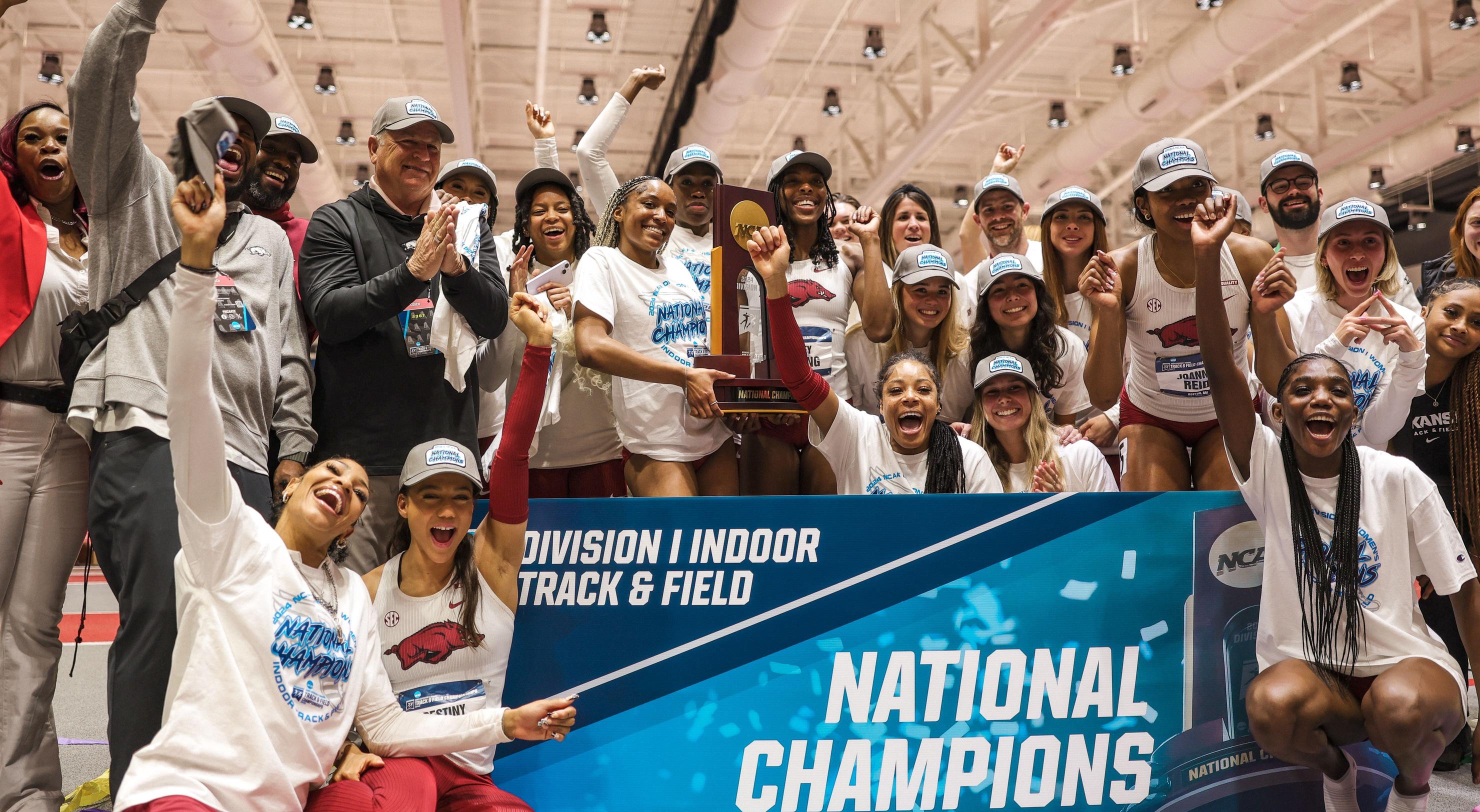
Austin DeSisto / @austin.desisto
Arkansas sprinters just do it better.
At NCAA Indoors last year, Britton Wilson turned a lot of heads in the 400-meter final with her 49.48 NCAA record to take down rivals Rhasidat Adeleke and Talitha Diggs. Arkansas ended up with 18 points in that final thanks to Rosey Effiong’s 4th place and Amber Anning’s 6th place, a key component of the Razorbacks’ team title performance.
How do you top that this time around with Wilson turning pro? You defend the title AND increase your point total. This time, Anning took the crown in 50.79 and Arkansas executed an incredible 1-2-3 sweep in the event with Nickisha Pryce 2nd and Effiong 3rd. And all three women came back to score in the 200m final half an hour later, then threw down a dominant run in the 4x400m final. Ultimately, the Arkansas quartet was disqualified for a minor lane violation, but they didn’t need the relay points to defend their team title as the Hogs clinched a 55-point victory over Florida’s 50-point runner-up finish.
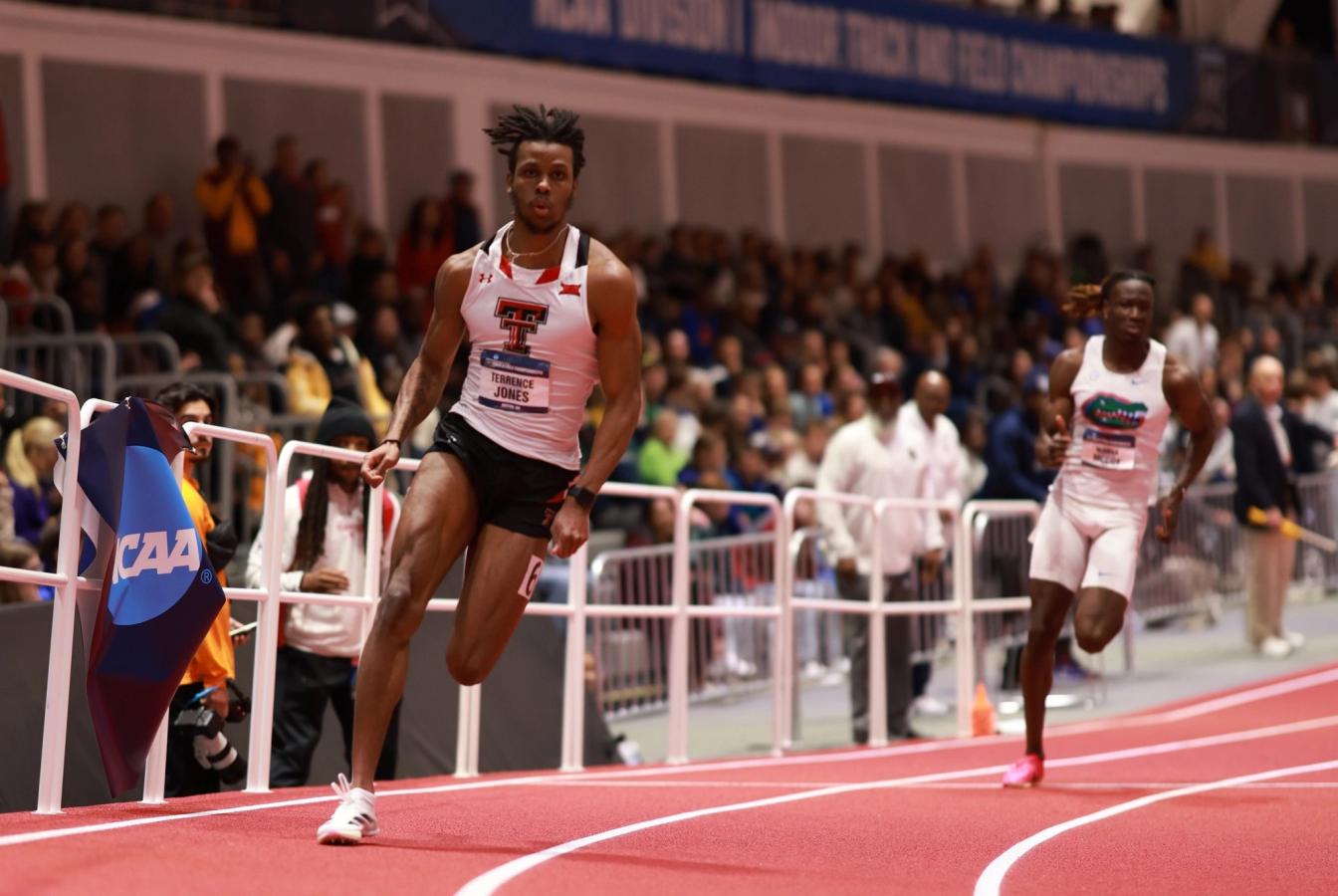
Austin DeSisto / @austin.desisto
Terrence Jones defends – and expands – his dominance over the sprints.
It’s one thing to defend your title in the closely-contested short sprints. It’s another to both defend and pick up another NCAA title in the same weekend, and that’s just what Texas Tech’s Terrence Jones did. In the space of about 45 minutes, Jones won his second 60m dash title in 6.54 over Iowa’s Kalen Walker, then he came back to the 200m and took down Penn State’s Cheickna Traore with a 20.23 win there. Even counting relays, Jones was the only sprinter, male or female, to pick up multiple NCAA titles this weekend.
And it mattered big-time in the team chase too. Together with Don’dre Smith (3rd in the 60m) and Caleb Dean (6th in the 60m, 1st in the 60m hurdles), 39 of Texas Tech’s 50.5 points came from the short sprints, which allowed the Red Raiders to dethrone the Arkansas Razorbacks for the first indoor championship in Texas Tech history.
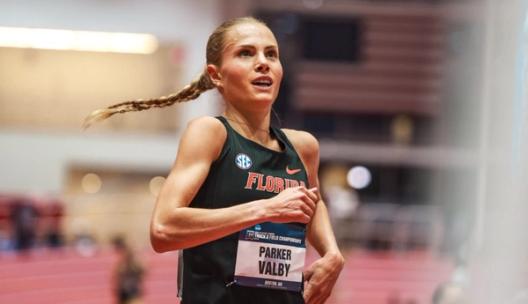
Justin Britton / @JustinBritton
Parker Valby operates on a different scale than the rest of the world.
It’s become fairly predictable at this point that any race NCAA XC champion Parker Valby enters will end with her grinding the field into submission and leaving a trail of carnage in her footsteps. And that’s just what the Florida Gator did in Boston – twice – winning the 5000m in 14:52.79 and doubling back the next day to take the 3000m in 8:41.50. There’s no secret to Valby’s race strategy; she simply hits the front then outruns everyone else. As the now-4x national champion continues to rise through the ranks, surely she will eventually hit a level of competition that is able to challenge her all the way to the finish, but that day has not yet come – and looks unlikely to happen in a college-only track race.
When Valby spoke to the media after breaking her own 5000m national record by 3+ seconds, she reported that the effort was, on a scale of 1-10, “probably like a six or seven.” After a solo sub-15 effort. With a national title on the line. And based on how strong she looked coming back 24 hours later to close the final half of her 3000m in a 4:32 1600m, she wasn’t exaggerating.
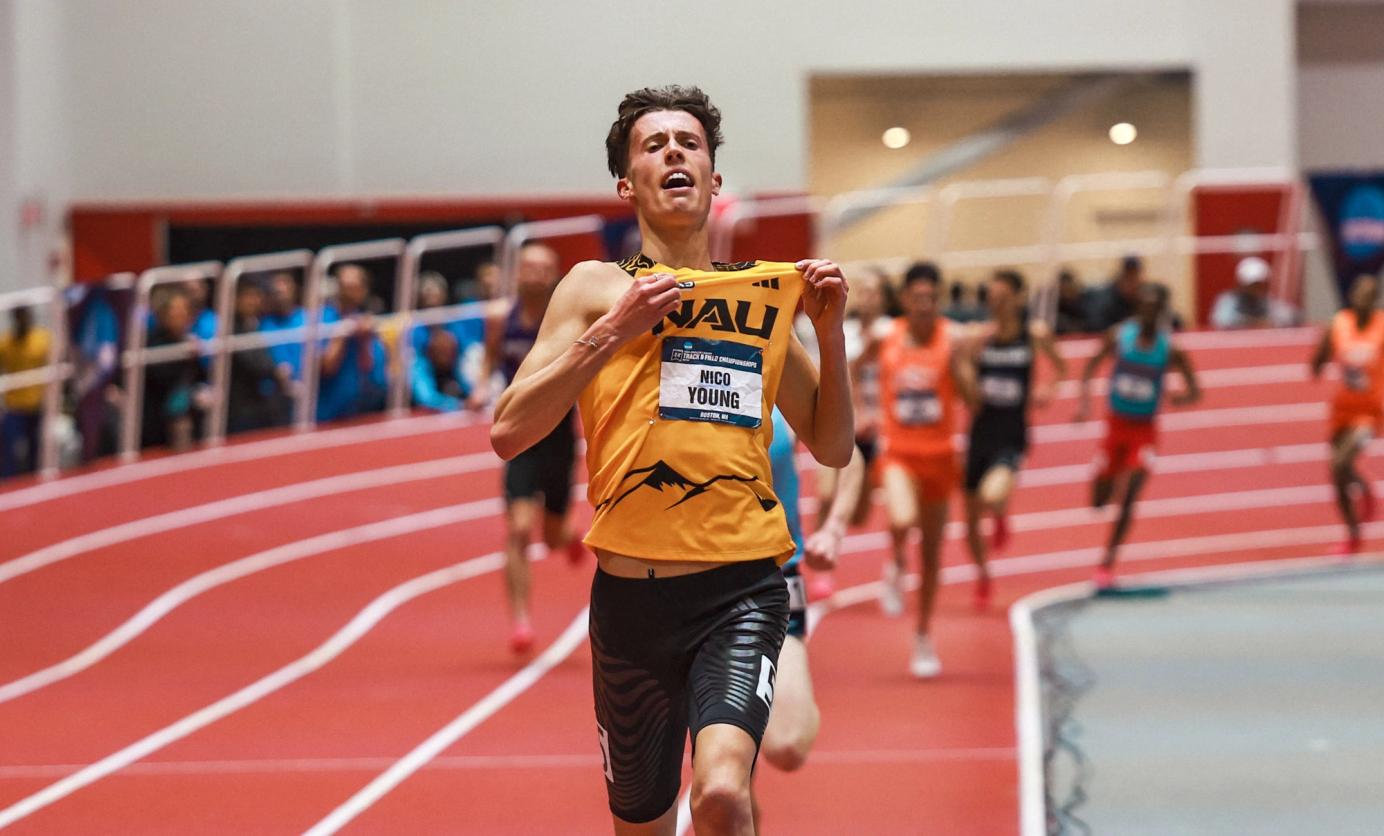
Justin Britton / @JustinBritton
Nico Young has wheels when it counts.
It’s hard to call the collegiate record holder in the 5000m, the only athlete to ever break 13 minutes while in the NCAA, “slow.” But the only real knock on Nico Young’s incredible collegiate career to date was that his championship resume didn’t quite match his performances in time trial-style racing. While the NAU junior boasts personal bests of 12:57 in the 5000m, 7:37 in the 3000m, and 3:56 in the mile, his highest NCAA finish heading into last weekend was 2nd in cross country and 3rd (twice) on the track.
Well, Young sure proved any doubters wrong this time. On Friday night, he outkicked a field that included NCAA champion Ky Robinson, ACC champion Parker Wolfe, and World Junior medalist Habtom Samuel to take the win in the 5000m thanks to a 54.39 final 4000m. Then he came back to the 3000m and won his second title even more decisively, running away from the field from 800 meters out to complete the double in 7:41.01. Young made it clear that he can win a variety of ways, and the 1:54.05 800m he closed with at the end of 8 kilometers of racing was a demonstration of the kind of strength/speed combo it takes to survive in the pro ranks. The future is bright for the Lumberjack, and so is the present: Now that Young has two national titles, his three years in the NCAA have produced a better slate of performances than any other male distance runner currently competing in the collegiate ranks.
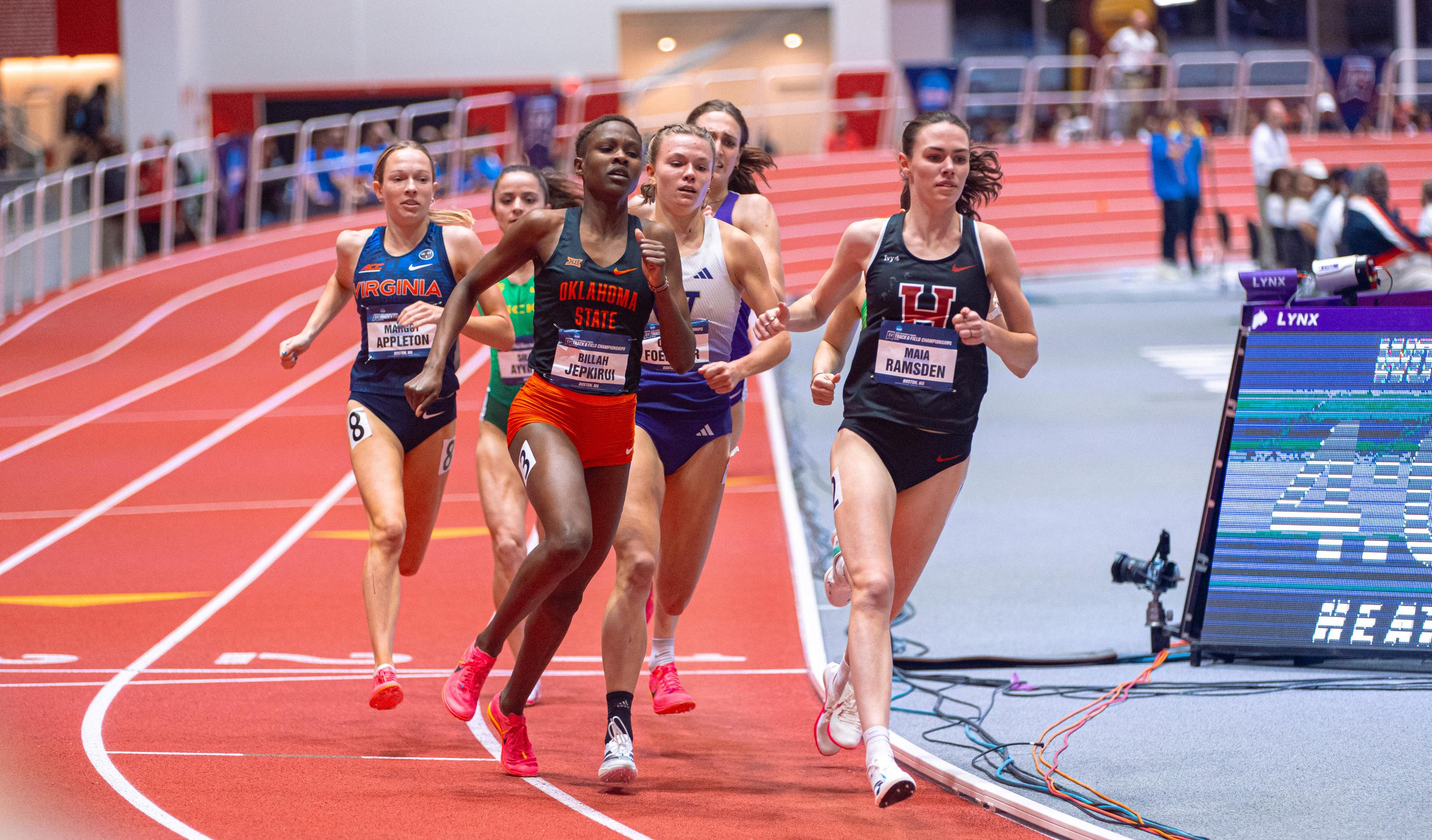
Austin DeSisto / @austin.desisto
Maia Ramsden beats the jet-lag and the competition.
It’s been a very busy couple of weeks for Maia Ramsden. The Harvard junior delivered her team Heps titles in the 3000m and the DMR at their home track at the end of February, then promptly packed her bags. In between her conference and national championships, Ramsden found time to head to Scotland and represent New Zealand at the World Indoor Championships. There, she was able to clock a pair of 4:06s, qualify for the final, and set the Kiwi record in the 1500m, all while submitting her senior thesis a few hours before.
If that whirlwind travel took a toll, you’d never know it based on how Ramsden raced the mile final, a confident and dominant win over OK State’s Billah Jepkirui, fellow Kiwi Kimberley May of Providence, and the rest of a stacked field that included 3 of the 10 fastest milers in NCAA history (not counting Ramsden herself, at #2). Ramsden’s 4:25.13 victory was a championship record, and the runner who’d never broken 4:30 before last month now has two of the four sub-4:26 performances ever run by a collegiate woman.
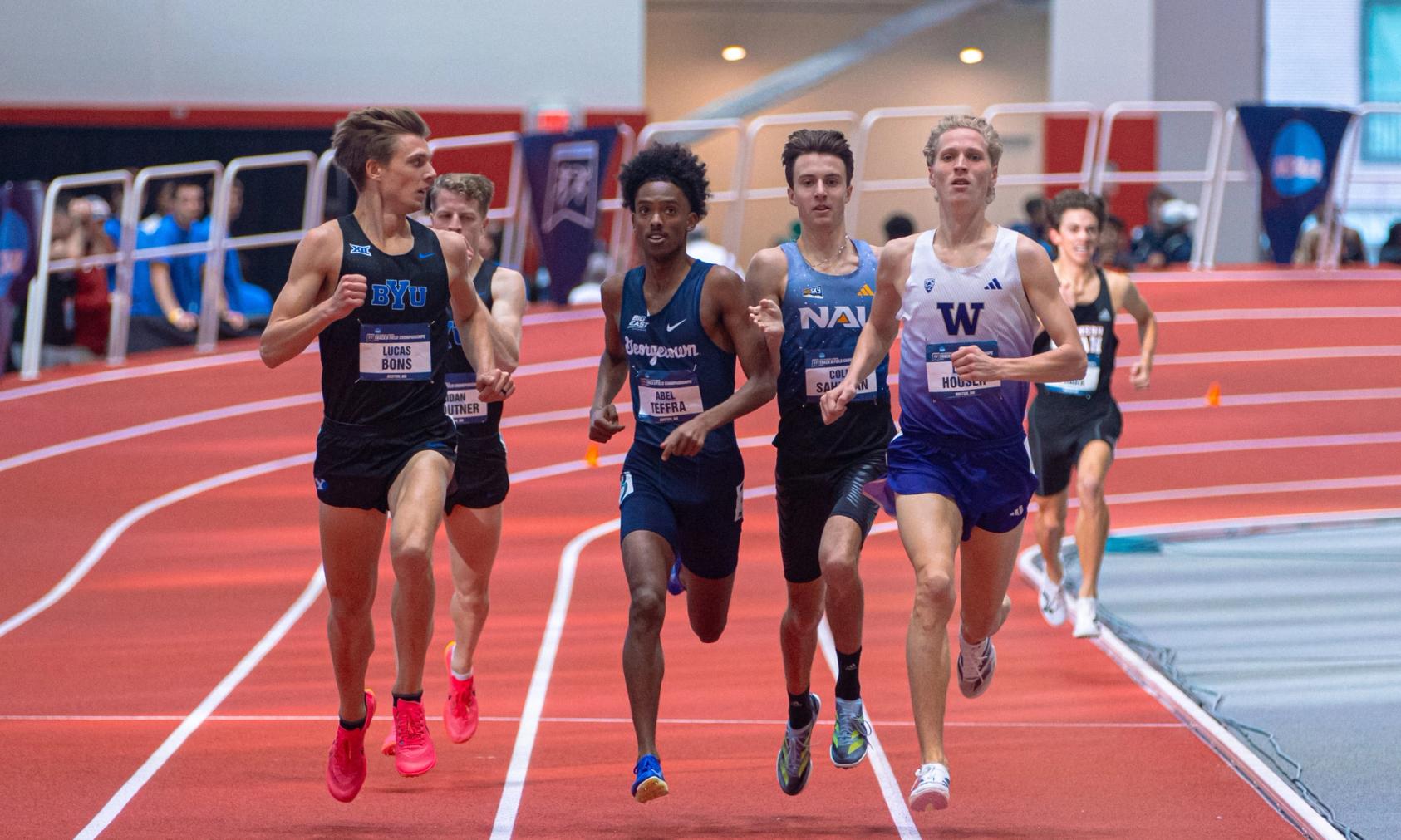
Austin DeSisto / @austin.desisto
Luke Houser is a tactical maestro.
It’s clear that the University of Washington middle-distance crew knows how to run fast. Five of the ten fastest miles ever run in the NCAA belong to Huskies, led by 5th-year Luke Houser’s 3:51.73 at #4. But Andy Powell’s middle-distance crew is perhaps even better known for their tactical brilliance in championship settings, as each of the last four straight NCAA mile/1500m titles has been won by a UW runner.
On Saturday, Houser became the first of the crew to defend his title, picking up a second straight victory in the NCAA mile final. Houser took the lead at 800m and never gave it up, slowly ratcheting the pace down and holding the inside line to claim the win in 4:01.72. Houser did have the fastest last 200m in the field, but not by much: four athletes including him closed between 26.82 and 26.90 seconds. Being in the front at just the right time is a huge asset in indoor racing, and Houser’s 2024 race was very similar to his 2023 effort (although he moved to the front one lap later and closed slightly faster last year). If it ain’t broke, don’t fix it.
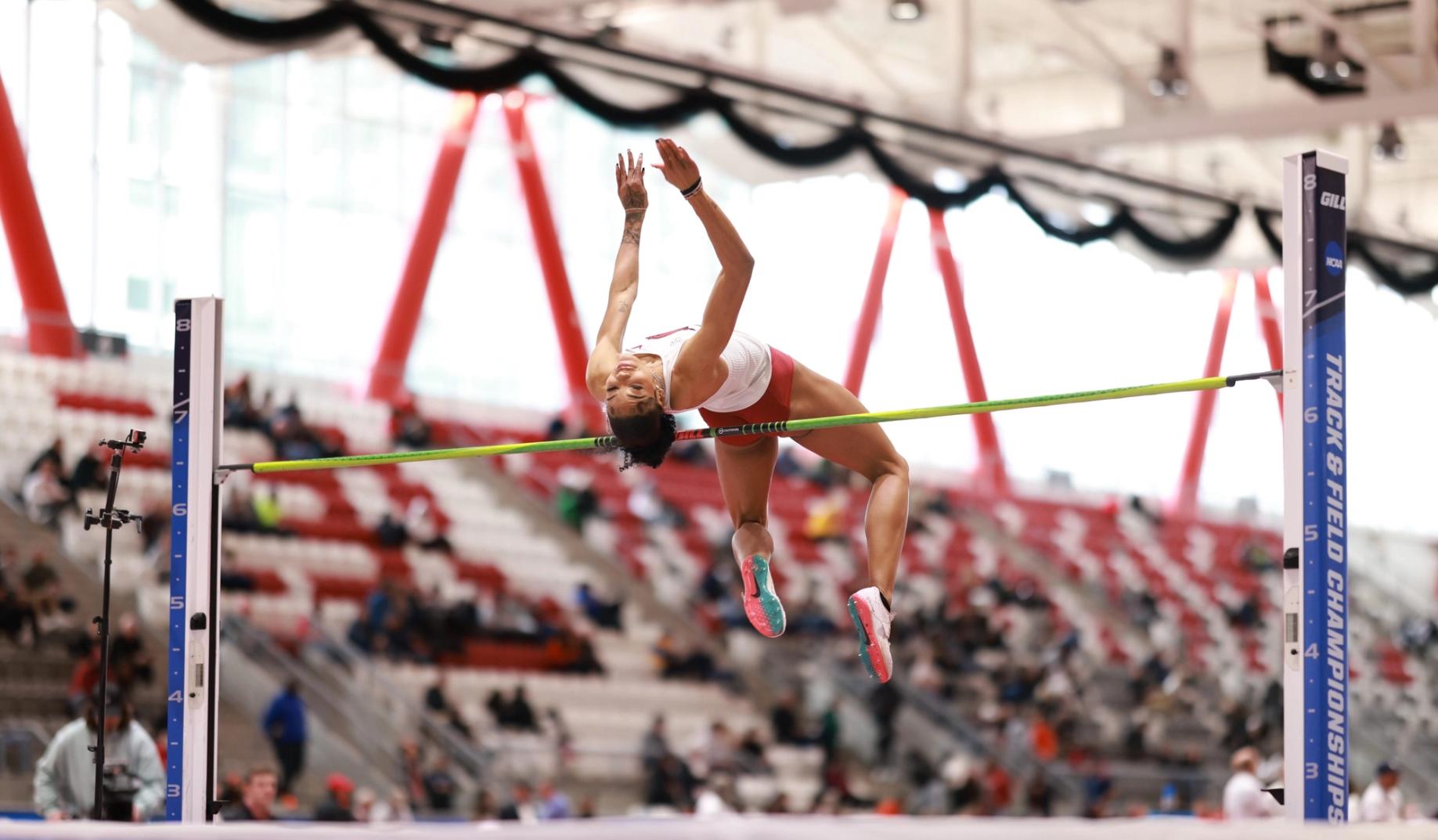
Austin DeSisto / @austin.desisto
Rachel Glenn gets her first PB in 3 years at just the right time.
The transfer from South Carolina to Arkansas seems to have worked out well for Rachel Glenn. The high jump specialist (who can also run 56 seconds in the 400m hurdles) was the 2021 national champ but hadn’t finished higher than 3rd in her last two national competitions with the Gamecocks. Texas A&M’s Lamara Distin was coming off a collegiate record in February and had to be considered the big favorite being the only 2 meter jumper in the world so far this year, but it was Glenn who came up big in Boston.
Distin and Glenn were the only two jumpers in the competition to clear 1.94m and 1.97m, but Distin soared over both on her first attempt and with Glenn missing her first try at 1.97m, she was sitting in second as the bar rose to 2 meters. Glenn was already having a huge day – her 1.93m PB from 2021 was
history and she’d already improved on her finish from 2022. But she wasn’t done, and she soared over 2.00m on her first attempt to tie the NCAA record and beat the NCAA record-holder in the process to put 10 big points on the scoreboard for her new team.
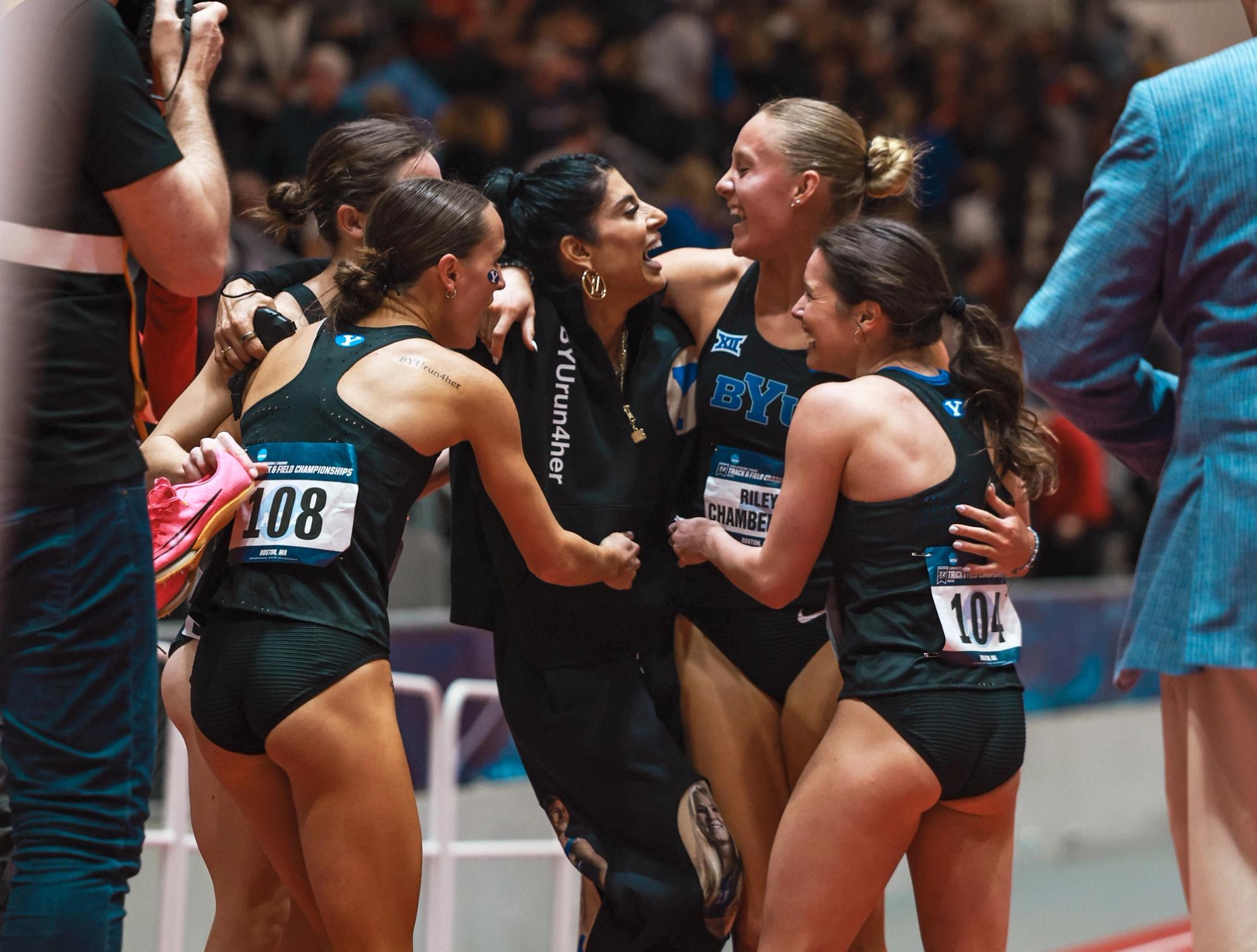
Austin DeSisto / @austin.desisto
BYU wins the DMR – and “best dressed”.
There’s been plenty of talk about how much the women’s DMR has elevated this year: six of the seven fastest times ever run happened this season, and eight of the teams on the all-time top 10 list ran their fastest time in 2024. With so much talent and depth, the University of Washington had to be considered the favorite as the national record holders, and Stanford perhaps the #2 as the defending champs, but thanks to sophomore Riley Chamberlain’s anchoring kick it was BYU that came out on top. BYU entered the race as the #4 seed, so it’s hard to call them an underdog, but Chamberlain was hardly the most credentialed anchor in the field, with PBs of “only” 2:03 in the 800m and 4:30 in the mile.
You’d never know it, however, by the way she blew past Notre Dame’s Olivia Markezich with 200 meters to go and pulled away with a 30-second final lap to hand the Cougars the national title in 10:51.42. It was a particularly fitting victory for coach Diljeet Taylor, who was wearing an outfit adorned with photos of athletes she was coaching and a jacket that said “WATCH WOMEN’S SPORTS” on the back. An apt message, as well, for International Women’s Day.
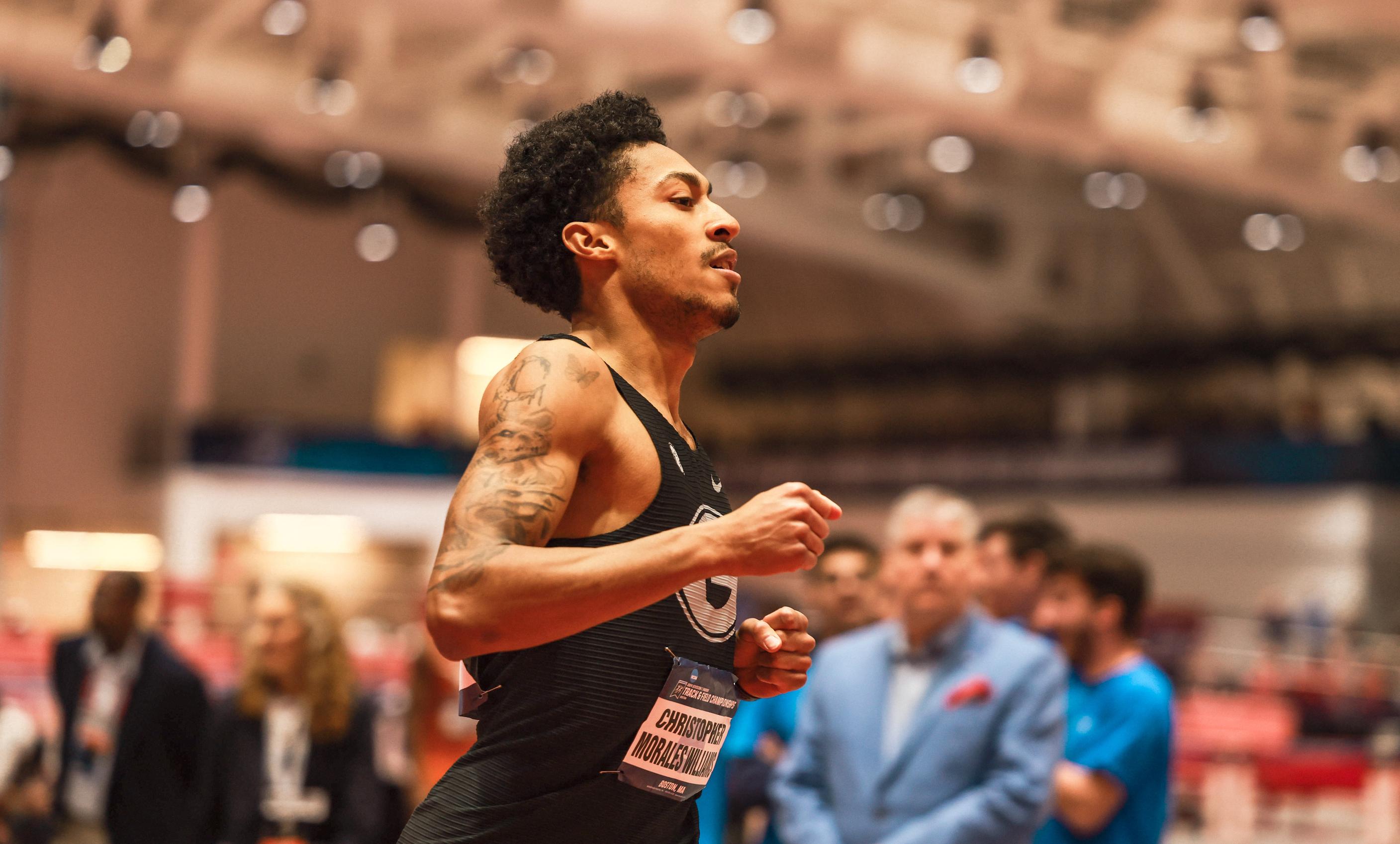
Justin Britton / @JustinBritton
We love a two-day championship.
This year’s Olympic Trials take place over 10 days, the 2023 World Championship took place over 9, and the Paris Olympics are scheduled to contest track and field events between August 1 and August 11. Holding big championships over a week or more allows the biggest stars to double or triple up events, recover between rounds, and run their best times. But it also stretches out the finals action and “prelim days” can take some of the excitement out of the viewing experience. Even the outdoor edition of NCAAs is four days long, but its indoor counterpart, like World Indoors, is shorter, with 34 national titles handed out over only two afternoons.
Short, tight championships keep the energy level high for fans and athletes alike and make for a very entertaining viewing package. Dividing up the distance events over two days allows for fun combinations of events among the mile, 3000m, 5000m, and distance medley relay, building rivalry and rematch narratives into the action. And more meets should have a team score element – it adds a layer of stakes and drama for every event that builds and nurtures lasting fandoms. NCAA championships aren’t perfect, but the format and schedule of the indoor champs are pretty darn great.

David Melly
David began contributing to CITIUS in 2018, and quickly cemented himself as an integral part of the team thanks to his quick wit, hot takes, undying love for the sport and willingness to get yelled at online.
